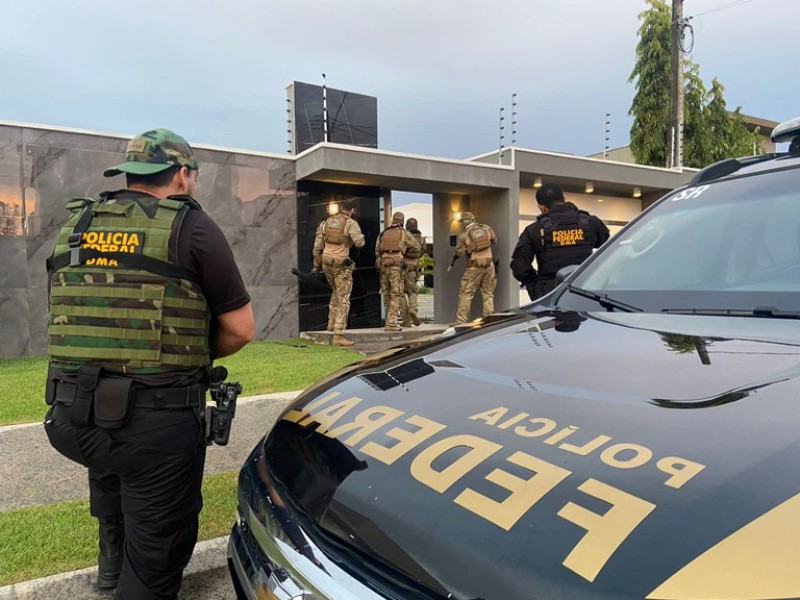Operation Vanglória, Brazilian federal police said, is mandated with investigating individuals suspected of moving millions worth of gold, sourced illegally from the country’s northern neighbor Guyana, through various shell companies.
Police launched the investigation after learning of a Guyanese businessman, with connections to the gold mining industry in his home country, who also has business dealings in Brazil that authorities believe are not above board.
For instance, investigators have tied the businessman to a Manaus-based company that sells foodstuffs, as listed on Brazil’s National Registry of Legal Entities (CNPJ). Upon inspection of the business’ address, however, police instead discovered a vehicle shop with a separate CNPJ listing.
Federal police agents also believe that the man has a Brazilian partner who has helped him move assets through shell companies. One of them, which reportedly trades in hospital supplies but does not operate at any registered address, is under investigation of laundering more than R$60 million ($12.3 million) in gold through its books.
Given its size and number of bordering countries, Brazil is a noted hotspot for gold smuggling activity. With just under 200 ports along the Atlantic Ocean, the country is the perfect launching point for criminals to smuggle gold out of South America and into lucrative markets such as the U.S., Asia, and the Middle East.
Federal authorities estimate that 30 tonnes of gold are illegally extracted from the Brazilian Amazon every year, an amount that is worth roughly $1.86 billion. This “dirty gold” is mixed in with legally mined reservoirs, making it much easier for traffickers to smuggle it out of the country.
In past investigations, authorities have learnt how shell companies have played a role in this illicit industry, which exploits low-earning miners in areas of poor human and economic development.
Specifically, shell companies help the conspirators launder their ill-gotten gains by issuing “invoices without a physical address to hide the illegal origin of the exported gold,” the Brazilian IRS said last year.
As a whole, the country’s precious metals industry, especially its production chain, lacks proper oversight, which gives companies the opportunity to trade in illegally mined and imported gold.
A self-declaration submitted by the gold’s bearers and transporters is all that is needed to certify the metal’s origin, and trade, as legitimate.
Police have so far executed three search and seizure warrants, as part of Operation Vanglória, in an attempt to locate the $16 million of illegally-traded gold. It is also their objective to determine whether the metal was illicitly taken from Guyana-based mines or from Brazilian indigenous areas.


